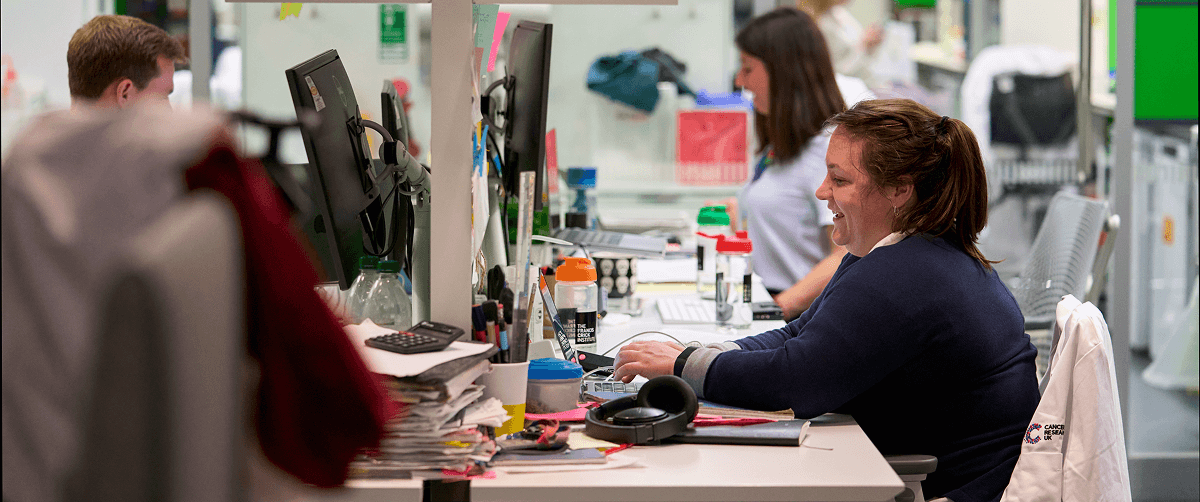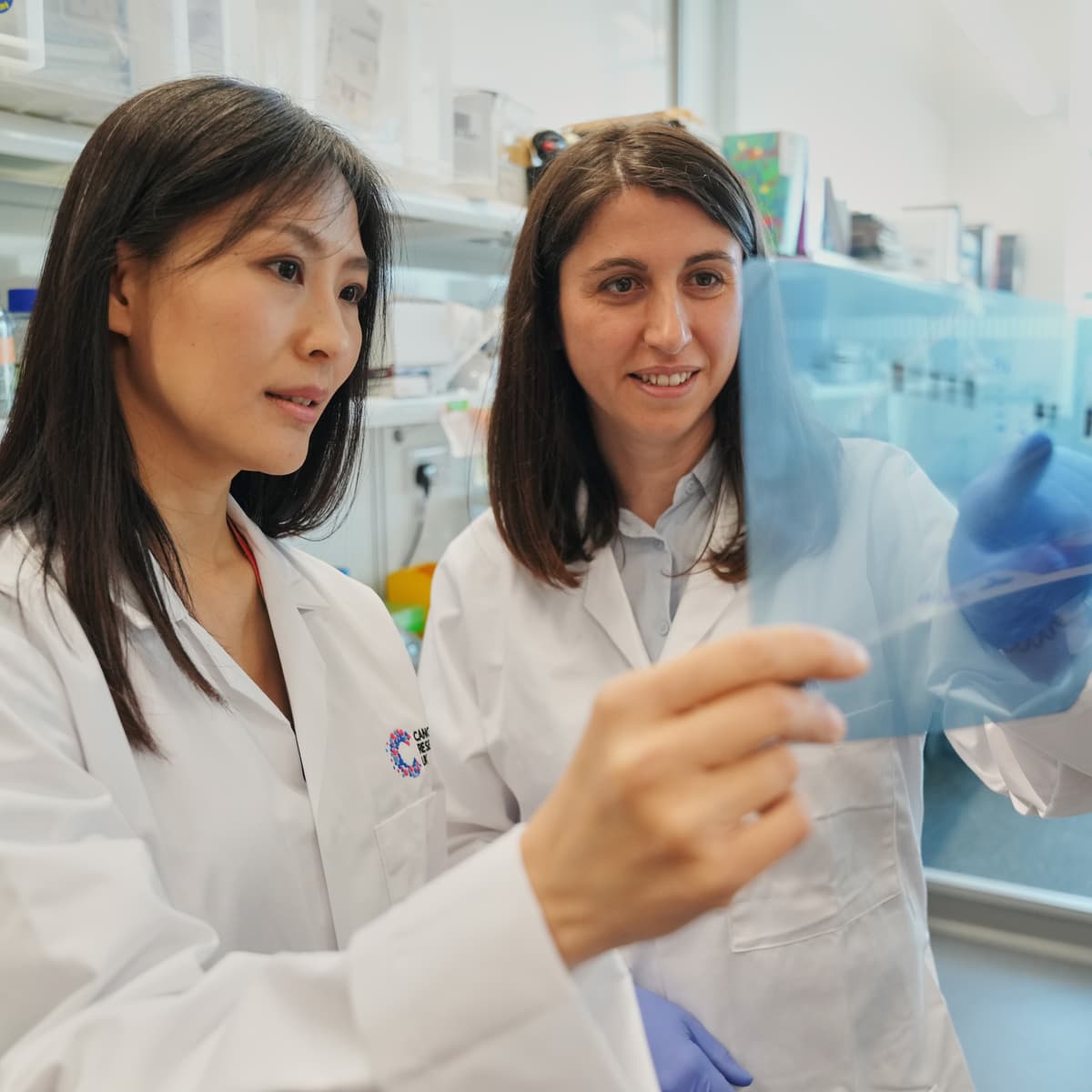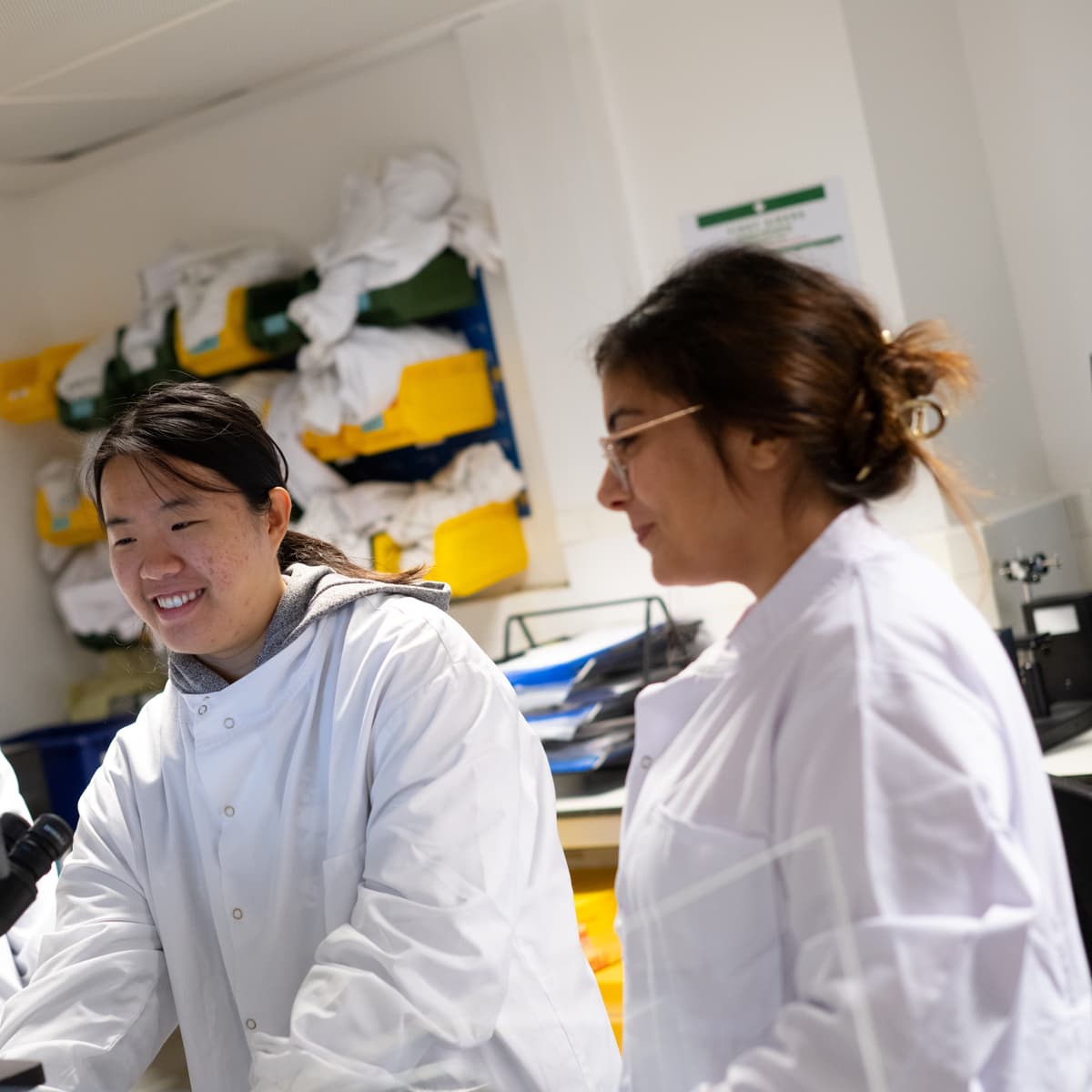
We fund research across four primary objectives – discovery, detection, prevention and treatment – to build a deeper understanding of every aspect of cancer that will ultimately lead to longer, healthier lives.
Explore our funding scheme pages to find out about eligibility, application guidelines and deadlines, what you’ll be assessed on and any specific terms or conditions that may apply.
We follow a rigorous, fair and transparent process to make sure the research we fund aligns with our research priorities and has the greatest potential to make an impact for patients.
Each year, we fund a wide range of new research through our response-mode funding schemes. Find out who has been recently funded and learn more about their research projects.
You can find specific guidance to help you apply on each of our funding scheme pages. We also provide additional guidance to help applicants navigate some of our requirements such as how to set up your online profile in our grants management system, how to justify costs in your application and how to write a narrative CV.
If you have any questions not covered through either the scheme-specific guidance or these pages, please contact us for support.
Email usOur application and award process is completed through our online grants management system, Flexi-Grant. Read our guidance on how to set up an account and manage your application and award online.
When applying for funding, you must provide clear justification for all costs, including staffing, running expenses and animal costs.
We offer the opportunity to use narrative CVs in your application. This gives you the opportunity to evidence a wider range of skills, experience and showcase broader contributions in research than a traditional CV format.
Along with the terms in your grant award letter, we also have additional requirements and funding policies governing all grants. Find out more about our policies and expectations for you and your host institution to follow when applying for or holding our funding.
Explore policies and guidance affecting your grantWe use Researchfish to capture the outputs and impacts of your research. We use these submissions to help us monitor progress against our research strategy, understand the impact we're having over time and to spot great case studies that we can share with our supporters.
If you receive funding from us, you need to let us know when you submit a paper or other research results. Doing this before publication gives us time to think about how we might be able to help you promote your research and maximise its impact.
By opting in to our registered reports funding partnership, you can publish results irrespective of your findings and have the opportunity to receive peer review feedback before you even begin your project.
We know things don’t always go to plan and you may have unforeseen delays to your research. If this happens, you may be able to apply to extend or suspend your funding from us.
We want all of our researchers to thrive. Read our guidance and support if you’re applying for or holding Cancer Research UK funding and are disabled or have a long-term health condition.
We recognise the challenges you might face managing a research career alongside other responsibilities. Our flexible funding policies are designed to accommodate your circumstances and help you reach your full research potential.

Our strategy shapes how we'll discover more about how cancer develops and progresses to unlock new and better ways to prevent, detect and treat it.

Patient involvement can improve the quality and relevant of your research for cancer patients. Our toolkit provides guidance, tips and templates to help you plan, deliver and evaluate your patient involvement.

We develop outstanding cancer researchers through funding, mentoring and coaching, training and networking opportunities.

We collaborate with researchers, industry, research institutions, funders and other partners to accelerate the discovery and development of new tools, treatments, and diagnostics.
We host scientific conferences, workshops, webinars and other events. Join us to hear about the latest science, present your research and network with our exceptional community.
Subscribe to our newsletters to hear about the latest news, funding opportunities, events and conferences and other research stories.
Explore our latest articles and podcasts for researchers, exploring issues in cancer science and how that science shapes our understanding of the disease.